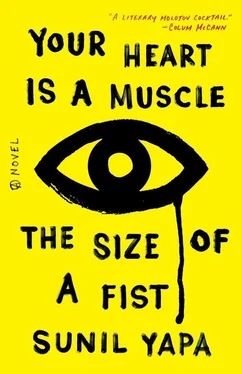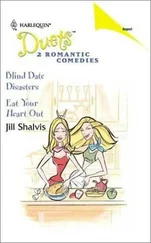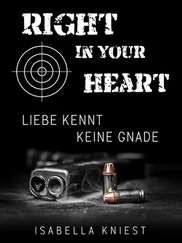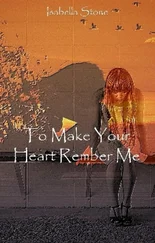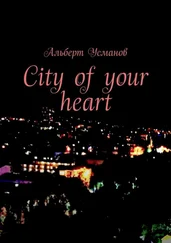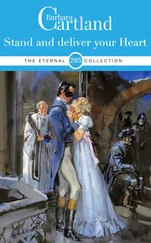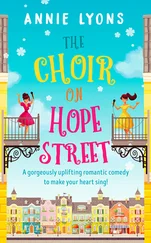Maybe it was a hundred cold mornings you spent with her. Even a thousand would not have been enough.
Maybe you were with her one of these many cold mornings with the steam rising from the pots, and it would have come over you slowly, as you passed the hard rounds of day-old bread, as you listened to the way she spoke with the men there, noticed the way they joked with her as a friend without any trace, large or small, of self-consciousness or shame or even deference, the way the men were grateful for the hot food yet accepted it only as one might pass a plate down a family table. God bless the beautiful necessity of food and flesh. And a certain funny feeling stealing over you because how do you see your mother as a person separate from yourself, a person necessary to other people, and loved, and yet Victor had, he had seen and understood that if tomorrow the order were reversed and these men, warmly clothed, handing the food to his mother, to himself, then it would be unchanged. He had seen and known, yes, this boy, with the uncanny sense that were it he in his thin clothes, shivering, blowing the steam from the soup, wondering about work but talking about other things, then all eyes would still be clear, there would still be the low murmur of a joke in the thin air and the food still passed from hand to hand with a nod and a word of gratitude, and whether he knew its name or not, this was all of life that Victor really would ever need to know. All of them, finally, eating, his mother, this black woman with earrings of hawk feathers, and Victor slurping soup from his bowl in the cold morning, talking and nodding with the men, and they treated him, too, as one of them, as a boy, but someone worthy of talking to, and Victor chewing and listening, eyes bright, and when had he ever in his life felt so at home as in this moment, among these men, and his mother’s guidance that allowed him to see it, that allowed him to be, and it finally clear to him that he was in the presence of something which he did not completely understand but which he knew to be great.
When that is taken from you, there can be no giving it back. No getting back to where you might once have been. God knows he had tried. Had traveled the world up and down and not come upon it again, the feeling of standing there in the cold mornings, and his life with some purpose. And it was as simple as this. Feeding a few hungry men before they went to work. That was all, and it was both the largest, most important thing to be done, and the smallest, and Victor didn’t want to go. Not yet. All the people he would never meet. To sit and talk, to waste time together, to eat beans from a bowl, to pass nothing more than a few cans of beer, to watch their faces as they laughed. He felt the baton blows raining over his body like fistfuls of packed dirt and felt for the first time how nearly unbearable the power of human life, the unbelievable fragility — there were times with people, touching them hand to shoulder, walking, singing, the human voice, there were times when he was with people that he could hardly stop himself from crumbling, just falling to pieces. What was that? Not sadness. Goddamn this place. It had been with him forever and did he just now know? Why now should he know just how much he loved this dark fucked-up place. A baton smashed his mouth bloody and he thought I don’t want to go. I don’t want to die. I will join you, one day, but please just one more day here, one more hour with these people. I just started. Let me see one more face. One more moment in this place. How fucked-up it is. But I don’t want to leave.
He felt a tooth work loose. He felt the batons battering him like hail, a shot to the kidneys that exploded like a star. He choked back a laugh that wanted to become a sob. He was glad to have done what he had done. To have wandered the world. To have loved his mother while she was alive. Even to have joined the people here today, it was nothing, so insignificant, but he had raised his voice to a good and true human pitch, that was what he had done, but now he knew all along it had been this. This had been the plan. To stomp the breath from his belly until he breathed no more. They wanted to erase him and all that he was from the face of the earth.
And he was going to let them.
Ju saw the girl coming before the girl even knew she was coming.
When Park and the Chief had gone spinning off the side of the PeaceKeeper, Ju had climbed down to the hood. She was alone, but she felt calm. The kids were shouting stuff up into her face, but she wasn’t worried, no, she was holding them back with the baton leveled at their chests and looking around, and waiting for some help. Not wildly looking, because it was important to remain calm, to retain the appearance of calm.
Ju wanted to remember they were human, these screaming mouth shapes beneath her, but she already had everything, both arms and face and the way you stand and how you respond to stress and the way you carry yourself, engaged in trying to hold them back.
Because that is what it meant to do the job. To be a well-trained police officer and not an angry hippie punk protester with a face full of metal and the privilege of getting pissed off whenever you felt like it.
Beneath her armor sweat was sliding down her back, gathering in the crack of her ass. Her hands were clammy without her gloves. She was armed, of course, with her pepper spray and her service weapon in a positive retention clip, but her bullets she preferred in her clip and her clip on her belt. The weight and heft of violence — an officer with a gun on the hip — were under ordinary circumstances enough to calm and quell. It was how you carried it — the ineffable it-ness of you in the world. The threat of force, the ability to dispense death and immediate pain — this she preferred over that force unleashed.
If she had had time to think, she would have thought there will be time to think about all this later. Time aplenty to contemplate and look at the day from different angles. Time enough to consider her actions and what had led to what and how it had all come undone. Time to let the guilt or shame or pride take up residence in head and gut, but later, because now she was a police officer in this city by the sea, this shining beacon of democracy and freedom and there was a threat.
She had watched as Park fired and his rubber bullet took the kid in the chest and he went down. Four officers swarmed him, but then she lost sight of the melee because more officers were running to surround the pile and now she watched as this wild horse of a girl broke from the mass, dodged the three officers in front of the PeaceKeeper, adjusted direction and picked up speed, pointed toward Ju like a bullet with her name stamped on the side.
It all registered in a flash. She didn’t need to think about it. That’s what it meant to be good police. And later. She would think about what all this meant later, at home, a week from now, watching TV, or in the bar with Park, because right now she was a cop and there was danger approaching. The girl was coming on hard. The girl was already in the air and climbing the distance like a series of steps and she was about five seconds from Ju when Ju reached for a rubber bullet to drop in the chamber and discovered she was out.
Time was moving slowly. This was how it worked. She was processing information. She was making decisions. She was trained. She knew what to do. The girl’s face was a contorted mask of rage. But not her. Not Julia. No anger in her, no she was calm, she was reacting calmly, she was in control even if she felt the buzz of stretched nerves as she reached for a rubber bullet and found she had none left. Things were happening slow and fast. She was trained. She was responding to a threat to her life and body. She was making decisions.
Читать дальше
